Kingdom Come: Deliverance 2 Review
Throwing down the gauntlet
A lot of developers in Europe seem to have a passion for RPGs. They strive to create unique open world experiences with complex mechanics, even if their ambitions are sometimes not able to shine through in the final product. And while some games earn the amusing descriptor of 'eurojank', they can nonetheless offer something very original, and become cult classics. Czech developer Warhorse Studios didn’t hold back when they launched their debut title, the first-person medieval RPG Kingdom Come: Deliverance in 2018. It was a noble effort, and with continuous patches and ports to more consoles, the game managed to not only continuously attract player attention, but Warhorse themselves got bought by publisher Plaion. With their ambitions now closer to reality, the team worked towards the recently released sequel, Kingdom Come: Deliverance 2.
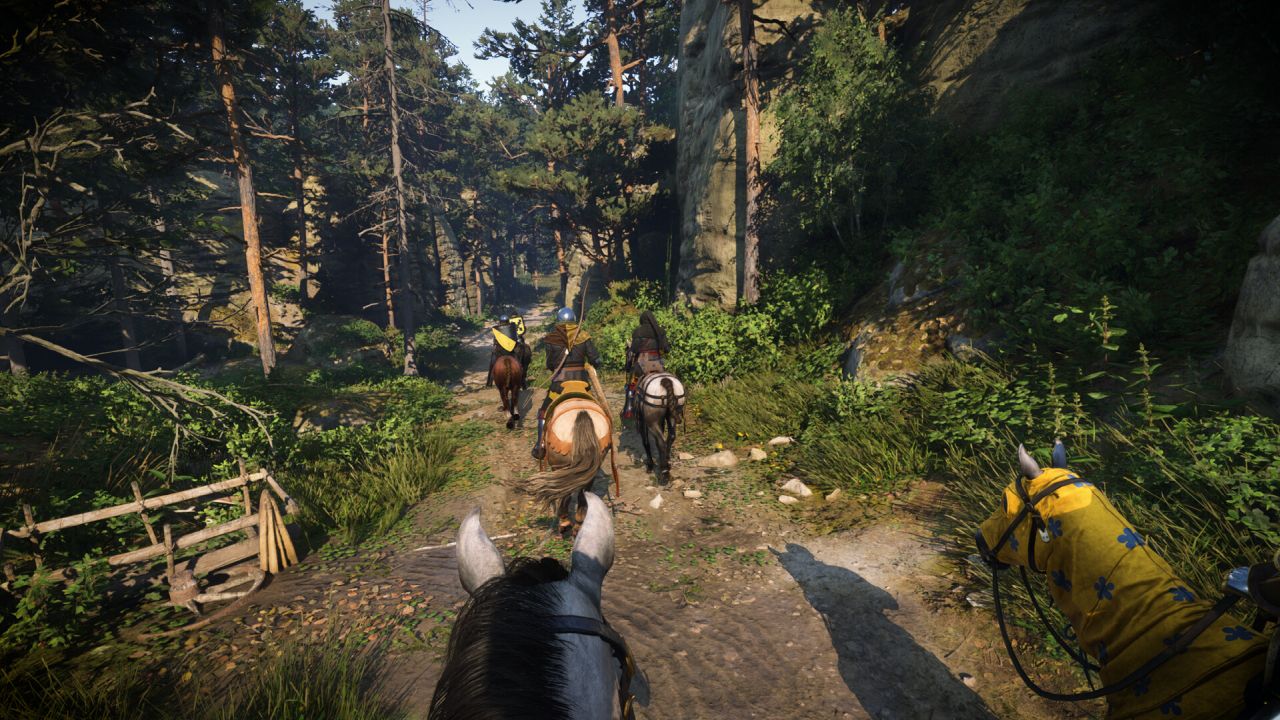
Deliverance 2 picks up soon after the events of the first game, following the adventures of Henry of Skalitz. It's the early 1400s in the Kingdom of Bohemia, and after getting thrown into political and military turmoil in the previous title, Henry has risen from being a humble son of a blacksmith to being a knight and personal guard for Sir Hans Capon, among his other titles and accomplishments. The sequel picks up as Henry and Sir Hans are traveling to another part of the kingdom to deliver an important letter from King Sigismund. However, along the way, through a series of amusing and yet believable circumstances, the pair find themselves without a coin to spare and nobody knowing their names or nobility claims in this different part of the kingdom. Henry must now essentially start over and earn his reputation anew if he is to complete his mission, and return home with his head held high.
The main narrative thread that carries the game forward is engaging enough to maintain player focus, even as numerous adventures and misadventures come Henry's way. The game continues to be rich in dialogue and is fully voiced, with the lead actors doing a good job across very lengthy (perhaps, sometimes too much so) cutscenes and conversations. Some of the minor actors are less impressive, constantly jumping between different accents and delivery qualities. The writing is fairly even and setting-appropriate. The characters are also believable, although some players may find Hans Capon to be playing his role as a spoiled noble acting like a child a bit too well, crossing into annoyance – though to the game's credit, Henry does get annoyed with Capon's antics and this drives a conflict between the pair that leaves them separated for a stretch of the story. The writing also continues to have bits of humor in it, with a sort of slapstick feel that again feels appropriate for the time period.
The saga could have used a better introduction, however. The opening hours are fairly linear, and there is no recap of the previous events. It's been seven years since Kingdom Come: Deliverance released, so even returning fans would have likely appreciated a recap. What we get instead are a series of flashbacks that re-use cutscenes from the first game, but these are so haphazardly put together that they barely give glimpses of events and characters and don't offer a worthwhile reminder. They will feel even worse for newcomers, containing far too little cohesive information, and also utilizing strange pacing. There is a video available on YouTube from the developers, but story recaps should be incorporated into the sequel directly, and better.
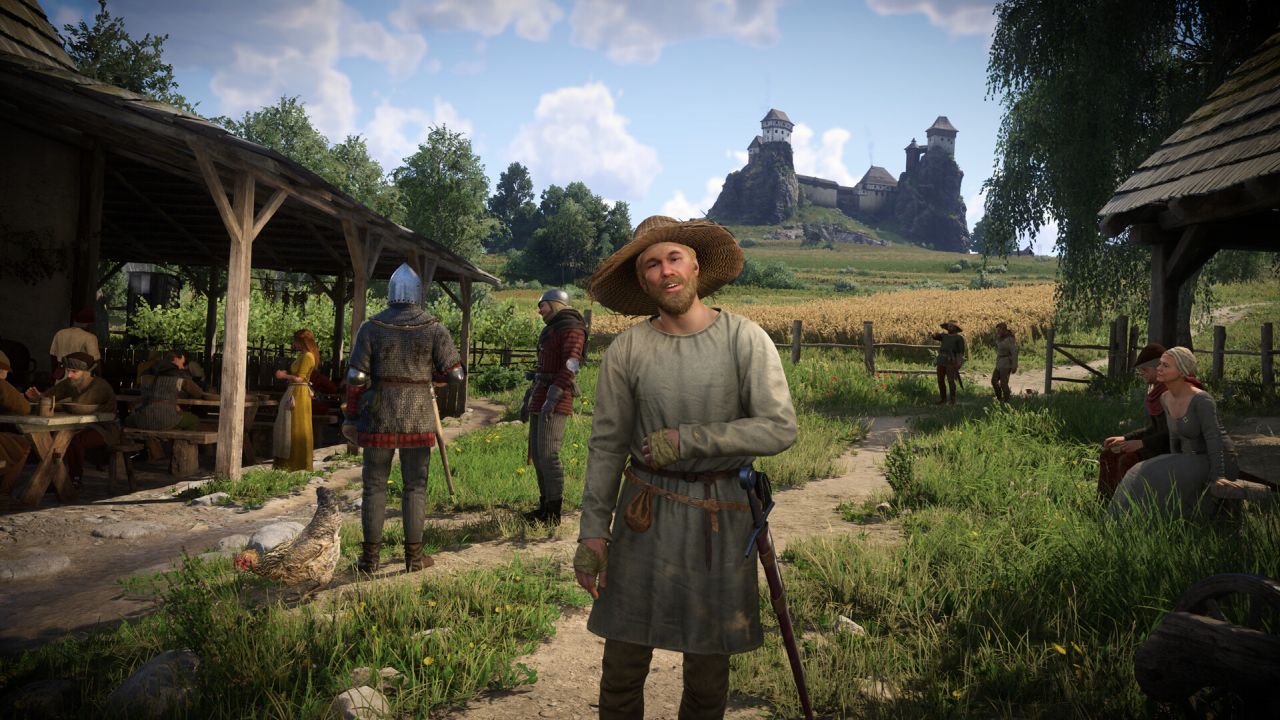
During Henry's adventures across the new kingdom, he will met a variety of characters who may or may not want to help him. The main quest will also push you to explore the decently sized world map to its edges, while picking up optional storylines and quests along the way. The RPG quest design is fairly typical, often getting you involved in tricky situations or simply making you break a sweat to earn some groschen (the sequel has a serious affinity for having Henry carry sacks on his back between two spots). Dialogue choices continue to play a key role, and they carry consequences of varying magnitude. Choices do matter, and the world can feel responsive and dynamic, such as quietly showing consequences on Henry deciding how to deal with criminals, or revealing a secret when promoted. Some quest chains are more interesting than others, but on the whole this is a setting that continues to immerse.
The sense of immersion was one of the best and most notable aspects of the first game, and the sequel continues to carry that mantra. The recreation of this medieval European kingdom is excellent, from the small towns and farm houses, to the excellently recreated natural environments. Across wooded paths, small creeks and open fields, through a full day/night cycle and the occasional rainstorm, the nature scenes in the game are wonderful and really submerge you into its world. This is a result of the realistic and yet softened art style, combined with great lighting and volumetric effects, as well as the distinct and detailed audio design. If STALKER and its ilk set the standard for post-apocalyptic worlds, Kingdom Come remains the leader of the medieval non-fantasy setting.
Many of the systems are a continuation of the mechanics found in the original game, revised and expanded. There is an entire set of menus that deal with Henry's various skills – from stealth to combat, speech, and trade. Each category has a variety of perks, which are unlocked as you raise your overall level, as well as by completing certain gameplay interactions. These perks most often consist of passive bonuses, such as being better at bartering with vendors, or excelling at stealth takedowns.The traditional skill categories grow naturally, such as strength when you carry those above-mentioned sacks, or combat when you keep emerging victorious in bouts. There are no skill points to assign directly – they grow as you perform actions. You can also gain skills by reading books, which causes a passage of time.
The day and night cycle remains a critical element of the game – it's not very fun to stumble around in the dark with only your torch, and the roads become more dangerous with potential wolves and bandits. Some quests take place during specific times of day, and Henry's wellbeing and conditions can also get better or worse overtime. You can pass time by simply standing around and fast forwarding, or by sleeping. Sleeping requires a bed you own however, which presents an ongoing challenge that we'll get back to later. Thankfully, the fast-travel system is still available between towns you've discovered, saving time on backtracking and helping explore faster. There are random events that popup during the fast-travel though, with a choice to stop or pass them by.
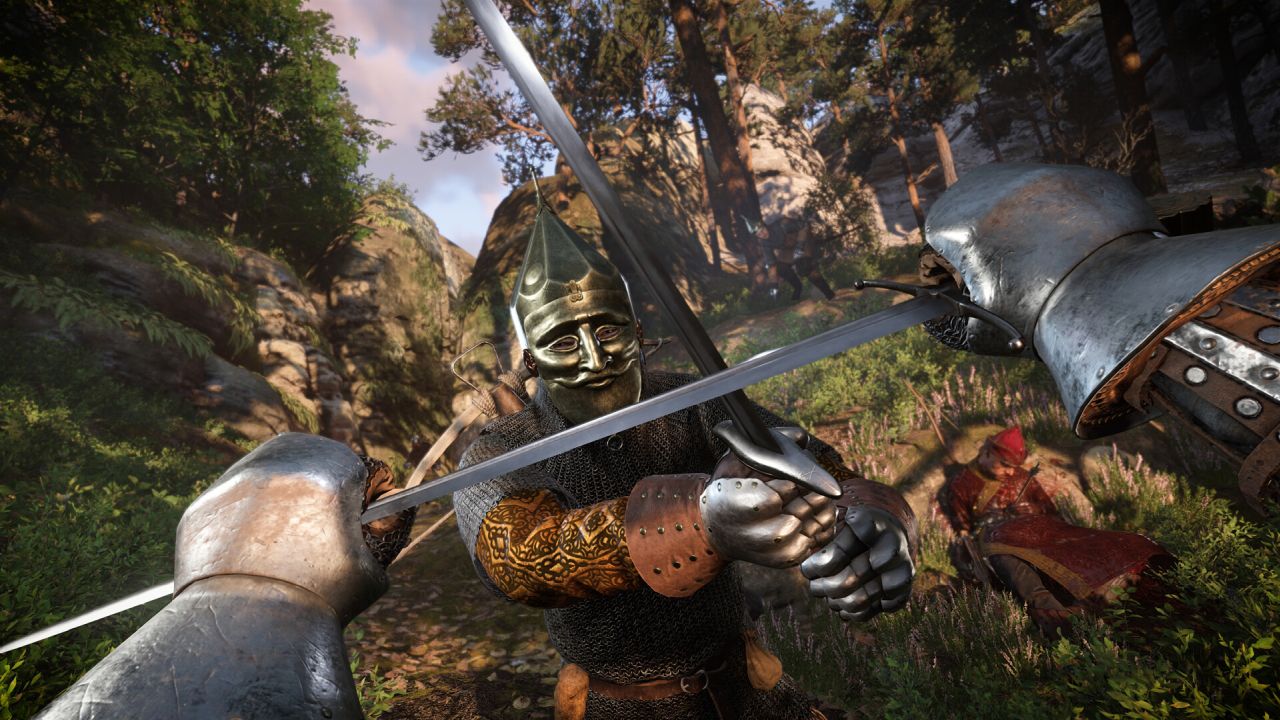
Managing inventory takes a bit of getting used to, although the combined menu screens that shuffle sideways remain decently well laid out. Considering the fairly low weight limit on how much you can carry (which does expand as you gain strength stat), there won't be too much stuff to rifle through anyway. A lot of what Henry carries is dynamic – from the armor and weapons that deplete in quality and effectiveness with use or just by being stained in blood, to the food that goes rotten. Stats such as stealth and charisma even fluctuate based on what you are wearing.
While the foundations of a modern RPG are all there and well executed, returning fans will know that it is in its intricacies that Kingdom Come 2 truly churns the butter. The game tries to position itself as a somewhat hardcore and realistic experience, and while that brings a unique sense of joy when interacting with some aspects of its world, it is not without annoyances and flimsy mechanics. From having to manually sit and grind your weapons on a stone wheel, to an involved alchemy system that requires you to read instructions from a book and manually add and mix all ingredients. You have to eat, sleep, and can wash yourself to clean up; you can get various conditions, from poisoning to bleeding and indeed over-eating.
Many of the elements initially seem immersive and highly detailed, but their sheer abundance and occasional obtuseness eventually begin to reveal their shortcomings, and as much as the game wants to try and be punishing, it leaves many doors open for player trickery. The conversation and reputation systems feel personal, but eventually you begin to encounter many instances where you lose reputation for unknown reasons as part of a casual conversation. Some of the speech checks succeed and fail without much feedback, despite having a clean outfit and passing the shown skill rating level.
Exploring the open world can take time, but it will be a while before you earn enough to live honestly, so thievery can be attempted. Stealing a horse will get you to the next town faster, but returning to the scene of the crime will cause an unpleasant encounter with the guards. Henry's options are to pay a fee, run/fight, or surrender for a punishment. The latter option becomes most efficient to clear your name – you simply get put in shackles and some time passes, and there is a temporary negative effect on your reputation for a while afterwards. But it also lets you keep your inventory (that's not proven to be stolen), and fully heals you of any wounds, which seems like a cheap way to get back into top shape.
You might be looking a bit beat up and desperate to steal a horse because combat is a frequent occurrence. While the game tries to offer other ways to solve a conflict, it does feel that clashes are inevitable, and frequent. Combat is another two-edged sword, whereas the push for realism also leads to some frustrations. The melee engine of the previous game has been tweaked, but remains somewhat clumsy. Henry can only swing at an opponent a few times before running out of stamina, and is able to strike a single foe from about four different directions. The lock-on fight system is still slow-paced and requires strategy, as well as a bit of luck and reading your opponents' attacks. The block and parry windows are quite large and display an icon; you can also perform fancy strikes and takedowns for extended damage.
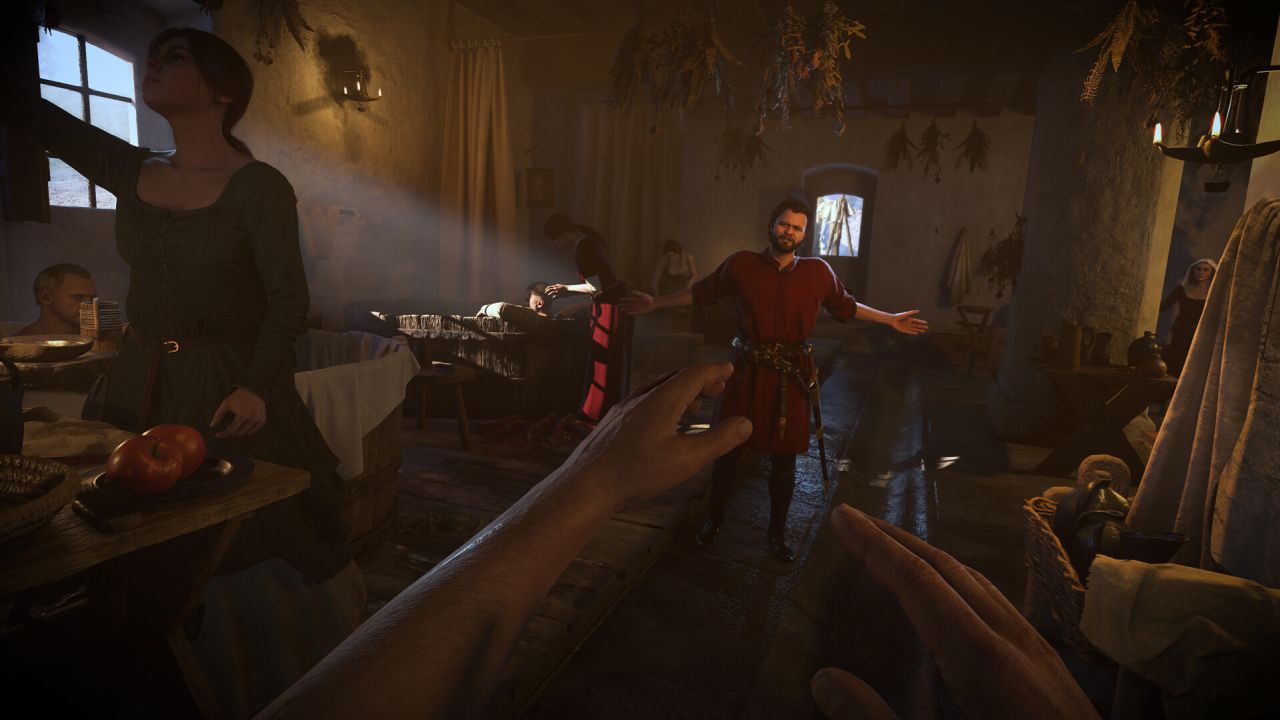
Still, it takes a while for enemies to go down, and it's not until late-game weaponry and fights against under-armored opponents do you actually feel like a powerful knight. The lock-on system remains finicky, and the fact that you can only focus on one foe at a time remains a challenge. There's not as much back-pedaling as in the previous game, as the AI seems to be more strategic as well, but it still can be easy to unintentionally lose a lock-on when quickly adjusting strike directions. Simply running away may not work as enemies do chase on foot for quite a while. You might consider switching to ranged options, but the weightless feel of bows and crossbows is underwhelming, dealing little damage and taking actual ages to reload.
Getting your chest plate kicked in is rarely fun, and often leaves you bleeding with broken equipment. Henry can bandage up and eat some food, or drink a health potion, but sleep (or, getting arrested on purpose) remains the best way to recover. Sleeping is required on occasion, and it proves to be just as annoying in the sequel. There are tons of places to sleep, but Henry must own the bed or pay for it. Otherwise, the town will issue immediate warrants for your arrest for taking a nap, as the game insists that it's a heinous act of trespassing for which you must be arrested. It's a bit silly that, having snuck into the attic of an animal barn in the middle of the night, an hour later someone somehow finds you, and reports you. The game lacks a UI indicator on whether or not a bed is owned by someone, and only sometimes does it indicate you are trespassing. But on the other hand, you can easily walk into anyone's home in broad daylight and rob them blind with no repercussions.
The push for realism continues with the return of the selective save system. The game is only saved during specific quest moments, when quitting, or when drinking a special potion. So you can't exactly abuse the system, lest you want to constantly restart the game or carry lots of those potions. You could also be ambushed or get into a tough fight, or just have poor luck in combat, and perish – losing potentially significant amount of gameplay time that would need to be replayed. With no difficulty setting and limited saves, not everyone will have a great time.
Saves continue to play an important role, however, because things can go wrong outside of your control. Deliverance 2 launched in a much better shape than its predecessor, with a mostly smooth experience, but there were still a decent number of technical issues. Quests would break, either due to scripting issues, NPCs going totally missing (but at least you can sleep in their bed without interruption), or the quest markers just choosing not to appear on the map. Physics engine sometimes goes awry, or Henry stumbles into an accidental sword swipe at a friend during combat, ruining the relationship permanently. There were also instances of dialogue options missing or displaying error codes instead of words. Still, for a large open world game with so many mechanics, things work fairly well.
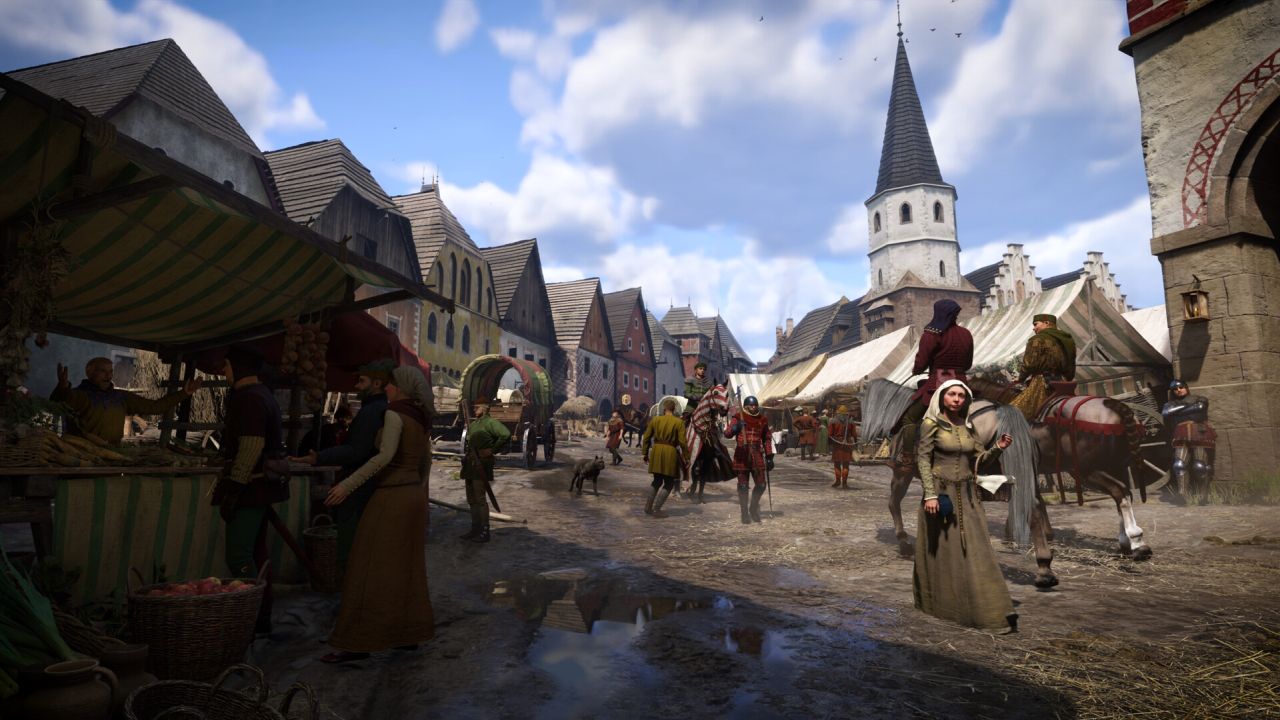
As mentioned at the outset, the visuals remain immersive, and the pre-rendered cutscene quality is good for an RPG. However whenever the game switches to real-time scenes, the drop in visual fidelity is rather noticeable, from the rendering quality to the animations and facial capture. There is no mouse support during dialogue choices, which can feel a bit jarring to navigate initially. But at least, unlike many recent games that have switched to the Unreal Engine, KCD2 employs a customised version of the CryEngine. While it may not always produce cutting edge visuals and sharp details – it at least runs at a very smooth framerate and seems quite nicely optimized, helped by its art style.
Not every debut title that begins so ambitiously gets to live long enough to get a sequel, but Kingdom Come: Deliverance managed to overcome those initial struggles through good post-launch support of the game, and earned itself the right for the follow-up. Deliverance 2 continues very much in the same vein as its predecessor, with some unique mechanics and a focus on realistic role-playing during medieval times. It still features some higher barriers to entry, and some of the mechanics grow more annoying than immersive, over time, but those who choose to partake in its responsive and highly immersive open world will find a worthwhile adventure that is well-optimized.
 Comments
Comments














